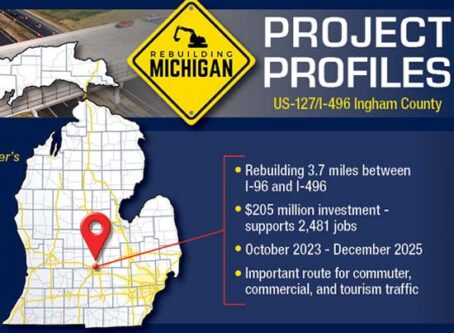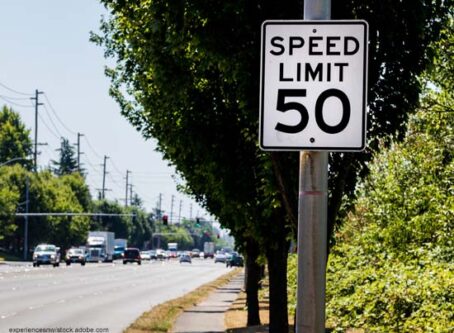Michigan bill would aid local road work
A Michigan Senate bill would continue the trend at the statehouse to benefit local road work throughout the state.
In 2020, Gov. Gretchen Whitmer signed into law a two-bill package touted to give local governments more flexibility to prioritize their road repair schedules.
Sen. Michael MacDonald, R-Macomb Township, has introduced a bill touted to bring local control to road funding. The bill is co-sponsored by Sen. Paul Wojno, D-Warren.
Michigan law now requires that all motor fuel taxes collected at the pump be sent to the state for distribution among localities.
The bipartisan bill would require all fuel taxes collected to stay in the county where the fuel was purchased by motorists and truck drivers.
“This is a bipartisan effort to continue the discussion about how we fund our roads and find fairer funding solutions for local infrastructure projects,” MacDonald said in prepared remarks.
“Under this bill, gas taxes dedicated to fixing the roads would be used locally to fix the roads of the drivers paying the tax when they fill up.”
The bill, SB32, is in the Senate Transportation and Infrastructure Committee.
Local road work aid
Two bills signed into law last fall also aid local transportation work.
The first bill, HB4965, amends the state’s road funding formula to give counties more say on how state fuel tax and vehicle registration revenue is spent locally.
Michigan’s prior road spending formula stipulated that 75% of funding be spent on primary roads. Local roads receive 25%.
Rep. Rodney Wakeman, R-Saginaw Township, said a blanket 75/25 rule on primary and local road repair allocation is not practical for every community.
The new law also provides local governments with more flexibility when deciding how to spend road repair money, and when determining which roads get repaired.
The requirement for local governments to submit their asset management plans to an oversight commission was not altered.
HB4966 covers the use of funds available for cities and villages. All state transportation funds distributed to a city or village now are required to be used for municipal streets. LL









